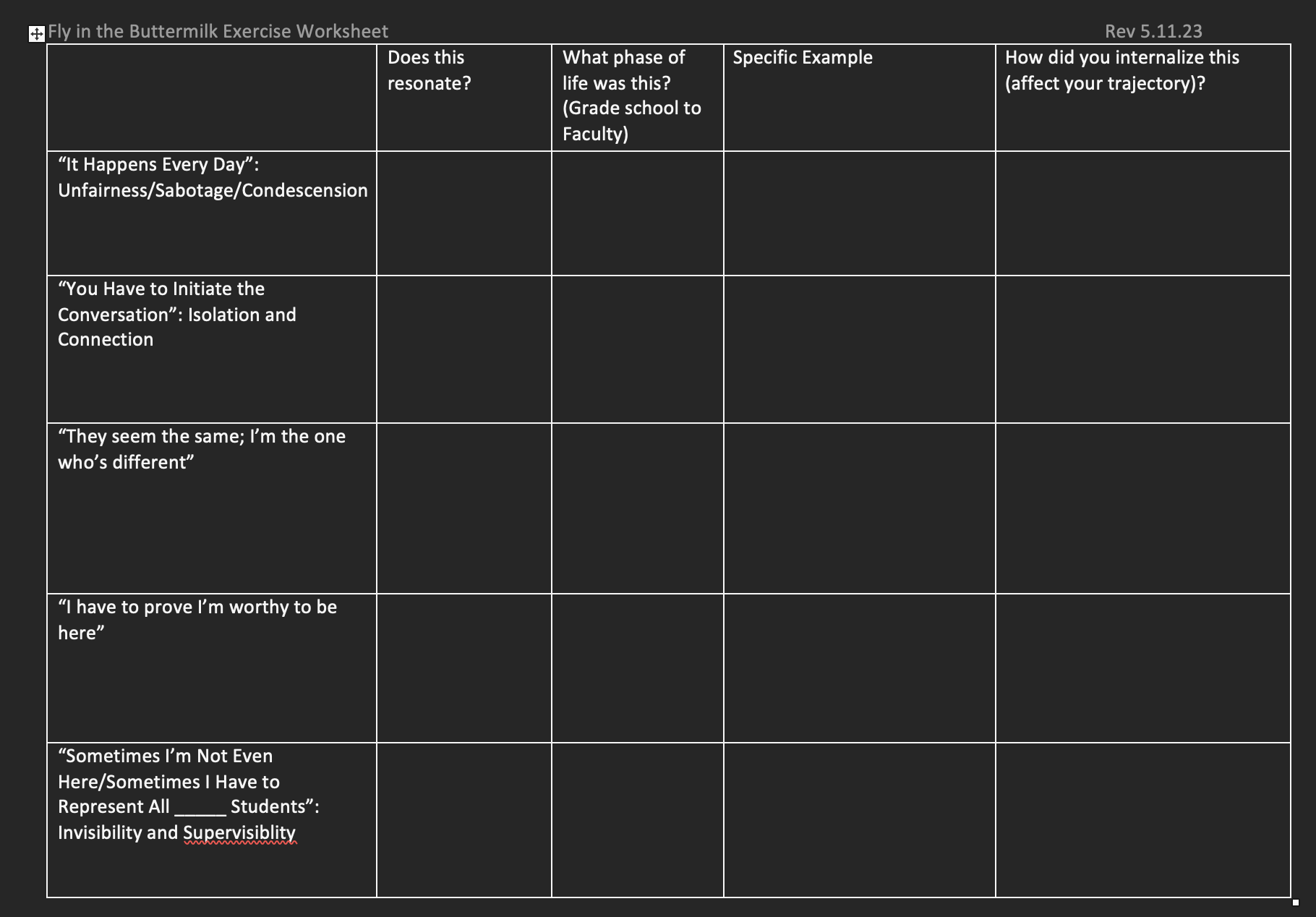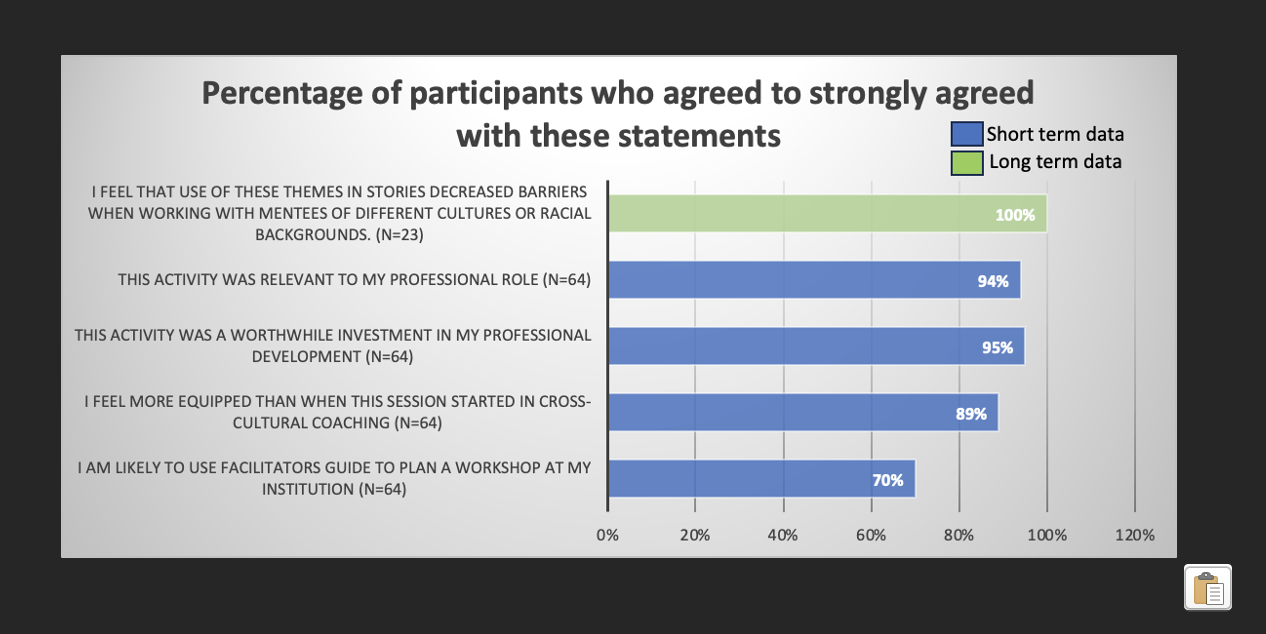Medical Education
Session: Medical Education 10
524 - Like a Fly in the Buttermilk: Utilizing Narrative stories to foster cross-cultural and racial connections in mentoring relationships
Monday, May 6, 2024
9:30 AM - 11:30 AM ET
Poster Number: 524
Publication Number: 524.3334
Publication Number: 524.3334
- GP
Gabrielle A. Pina, DO (she/her/hers)
Assistant Clinical professor
Loma Linda University Children's Hospital
Moreno Valley, California, United States
Presenting Author(s)
Background: Underrepresented in Medicine (URiM) trainees face distinct challenges before and during their medical education and training. Current strategies to improve the experiences have ranged from targeted recruitment efforts, educational sessions for URiM and minority populations, and intentional pairing of URiM faculty mentors with URiM trainees. While these efforts are necessary, they bring about change slowly and have inadvertently brought upon the "minority tax" for URiM faculty.
Objective: Thru the power of narrative stories, can we equip non-URiM faculty with the tools to improve comfortability regarding cross-cultural relations with their mentees?
Design/Methods: We developed a 90-minute workshop based on a qualitative study published in 2004. Five themes were introduced to explore past traumas. We created a worksheet for participation and self-reflection on a theme that resonated with each participant and utilized small and large group discussions to examine the impact of the themes. This workshop aimed to prepare participants to develop cross-cultural coaching/mentorship relationships with trainees.
Results: We recruited mentors (N = 64) to complete the immediate feedback form during our national presentations obtained through an anonymous Qualtrics survey distributed at the end of the workshop. These participants experienced this workshop at the four local and national conferences. Nearly all (95%) agreed with these statements included in the survey: “This activity was a worthwhile investment in my professional development,” “was relevant to my professional role,” and “I learned new knowledge and skills.” Most (89%) participants “felt more equipped in cross-cultural coaching/mentorship,” and 70% agreed, “I would likely use a facilitator’s guide to plan a workshop at their home institution.” To evaluate the long-term impact of this single-series workshop, we recruited participants at our local institution and participants from the national conferences referenced above to complete a Qualtrics survey. We received 27/64 follow-up surveys. All (100%) respondents agreed that using these themes in stories has successfully decreased barriers when working with mentees of different cultural or racial backgrounds due to this workshop.
Conclusion(s): Decreasing barriers between individuals with different racial, cultural, and socioeconomic backgrounds is critical to developing resilient, diverse healthcare teams. Using these five themes and associated personal stories may help build connections among team members by lowering barriers between mentors and mentees of different cultural or racial backgrounds.


